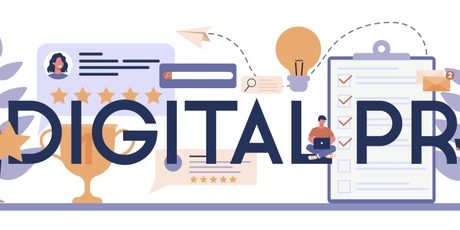Nowadays, content marketing can be found just about anywhere online. It might be challenging to distill the meaning of a commonly used term and figure out how to apply it to one’s own small business when the term is bandied about so carelessly.
However, for today’s owners of small businesses, content marketing is not only an option but also a necessity. Many business owners find that the problem of marketing their brand is practically insurmountable because they have limited resources and there is a lot of competition.
In point of fact, sixty percent of these companies all businesses do not have any web presence whatsoever.
According to a report published by the market research company Aberdeen Group, content marketing can be an effective solution in this situation because it can lead to conversion rates that are six times greater in comparison to non-users.
Content Marketing Campaign Strategy For Small Business:
In case you haven’t heard of it before, content marketing is a strategy for spreading the word and interacting with consumers through media like blogs, podcasts, videos, and social media posts. The goals of a company’s content marketing strategy are to increase brand awareness and trustworthiness.
Here’s how to begin a content marketing strategy for a small business if you’re a marketing novice.
1. Identify your target demographic.

It’s counterproductive to put out something that no one is interested in reading. If you want to successfully market to your target demographic, you need to learn as much as possible about them, their preferences, and how they make purchases.
There are a variety of methods available for gathering information on your target demographic. Conducting surveys among your current clientele is one approach. Inquire about their thoughts on your company, offering, and messaging as a whole.
During this step, it is important to gather as much information as possible on your target audience. Finding out demographic details like average age, gender, income, and spending habits might spark ideas for your content.
Share surveys via social media or email to encourage participation from customers who would not otherwise hear about them. Also, you might use an incentive like a discount code or a freebie. Make sure your survey is concise enough that people can complete it in a few minutes while yet providing you with useful feedback.
2. Create a website with a primary focus on conversions.
A website serves as the hub of your overall content marketing effort. You’ll lose potential customers if you try to save money by cutting corners here.
When more than half of your customers look into your company online before making a purchase, it’s crucial for your business, no matter how big or little, to have a solid online foundation.
It’s not easy to make a professional website if you have no experience in copywriting, coding, or web design. If at all possible, hire experts. Details, details everywhere: these are what make or destroy a website.
Consider the importance of speed as just one example. If it takes more than three seconds for your website to load, you risk losing a significant portion of your audience. Lack of mobile optimization, boring web text, malfunctioning features, and perplexing navigation are additional causes of high bounce rates on websites.
When it comes to your website’s success, your choice of hosting provider is crucial. You should take your time to decide which one to use.
3. Make sure that your content is easy to find.

The greatest method for a small business to achieve its content marketing goals—increased sales, new customers, or brand awareness—is to provide content that people can use to better their own lives.
Once you have identified your target demographic and launched a stellar website, you can turn your attention to developing engaging content to entice new users.
Although you want clients to gain insight into your business, you don’t want to come off as pushy or self-promotional. Customers may get quite dissatisfied as a result of this. Instead, focus on writing about the business sector, relevant research or statistics, or helpful tips for advancing your company’s goals.
Incorporate keywords and phrases that lead readers directly to the content they need. Never start a content creation project without first conducting thorough keyword research; this is the bedrock of internet marketing. The Google Keyword Planner is a great tool for this.
Analytical tools can help you decide whether to promote content via paid search, organic search, or a combination of the three.
The Content Template tool in SEMrush examines your rivals’ organic search data to inform you of the best keywords to utilize, the optimal content length, and the best places to obtain backlinks, as well as assisting you in selecting the platforms to focus on.
In the end, the value that branded content conveys is what matters most. It’s important that the information you provide points out a specific issue and provides helpful, personalized suggestions about how to fix it.
4. Put your content out there.
What you’re looking for is already in your possession. Currently, what should be done?
You won’t have to worry if you’re one of the rare people who have a massive email list, a sizable, devoted readership, and an army of passionate admirers.
But if you’re a small business owner like the majority of those out there, you know the hardship of trying to bring in new customers. It resembles a convoluted form of courtship. Connection, a real want to aid, and true and ongoing participation is the content marketing equivalents of roses, dinner, and a movie.
Pro Tips:
Don’t be reluctant to use paid promotion. Don’t be afraid to use paid advertising to market your content if you have invested in its creation. While organic traffic acquired without spending a dime is invaluable, there is much to be gained by combining the strengths of content marketing and more conventional forms of advertising.
Conclusion
There are several ways in which businesses of all sizes can profit from engaging in content marketing. Trust in the brand, purchases, and repeat business are all boosted if this is executed well.
A content marketing strategy for a small business is a complex undertaking that requires careful planning and execution. It may make a tremendous difference for your small business with some preparation, investigation, and a concentration on producing high-quality content.
There is a learning curve associated with content marketing, just like there would be with any new company endeavor.
Try not to be too hesitant. Never be too proud to try and fail. The finest information tends to be repetitive. A progressive content marketing strategy that strives for content excellence rather than simply more noise can be achieved through a focus on development and evaluation.
Read Also:























All Comments
bezmaksas binance konts
Thanks for sharing. I read many of your blog posts, cool, your blog is very good.